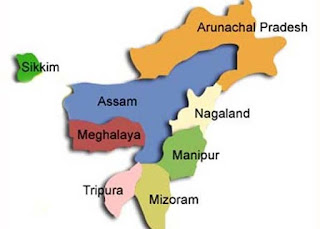(India and Russia have rekindled the old bond at the Summit meeting between Prime Minister Narendra Modi and Vladimir Putin on December 6 in New Delhi)
A major lesson from 2021 diplomatic and strategic experiences is that it would be erroneous to suggest that China is all too happy about the developments in Afghanistan.
Great Wall of China: Coffee time 2019
India and China have borders and other skirmishes. But they do have a significant stake in the stability of countries like Afghanistan. Beijing is particularly concerned about the stability of its restive Xinjiang region. New Delhi's concerns are pretty well known.
Against this backdrop, it will be important to assess India-China relations in 2022 and the importance of RIC - Russia, India and China.
Once upon a time, the United States virtually found it exceedingly difficult to define its "national interest" in the absence of Soviet power. But things changed once China developed its business and trade globally.
China is rapidly emerging as a challenger to the global pre-eminence of America. This pushed Washington to understand the importance of partnering with a democratic India.
Lately, India and China cooperated and collaborated during the COP-26 Summit in Glasgow and joined in opposing a commitment to "phase out" coal. Both Asian giants and Russia under Vladimir Putin have also been cooperating on regional security in fora, such as the Shanghai Cooperation Organisation (SCO).
RIC Summit and Foreign Ministers meet have also been regular events. But it is also true that while Russia-China has inched closer, for its part, India has inclined more towards the United States.
Even the Summit for Democracy and President Joe Biden inviting PM Narendra Modi was crucial. India to the United States is a suitable 'counterbalance' against communist China. But complexities are too prominent to be missed regarding the India-China relationship.
China enjoys a favourable balance of trade with India, but Beijing will not hesitate about its military aggression regarding territorial issues and so-called border tensions. The Indian government has banned a series of Chinese apps. These, however, do not affect China much on the economic front. India's trade deficit with China rose by 56.12% to $28.10 billion USD in the first half of 2021.
This indicates that in spite of the tensions, the India-China trade equation has thrived. But when it comes to giving access to Indian pharmaceutical companies, China is yet to award market access.
India has other irritants too. Beijing launched the China-Pakistan Economic Corridor, started working with Pakistan, and tried to 'undermine' India's influence in its neighbourhood. It also expanded the military presence in the Indian Ocean.
Beijing has continuously pushed its economic interest in the region and the extended neighbourhood of ASEAN countries.
External Affairs Minister Dr S Jaishankar has tried to understand the significance of all these, and thus he waxed eloquently. "... the state of the relationship, at the end of the day, will reflect the state of the border. You can't have a tense, high friction border and have great relations in all other parts of life. It doesn't work that way."
But when it comes to Russia, both New Delhi and Moscow have rekindled the old bond at the Summit meeting between Prime Minister Narendra Modi and Vladimir Putin on December 6 in New Delhi. New Delhi seems to have drawn the right message from the western mistakes.
The western campaign to 'isolate' Russia after the Soviet collapse has driven Moscow to China's 'much closer embrace'. Even the US is taking corrective steps. In July 2020, under the Trump administration, Washington suggested the expansion of the G-7.
The Group of Seven (G7) is an inter-governmental forum consisting of Canada, France, Germany, Italy, Japan, the United Kingdom and the United States. It was suggested that India, Russia, Australia and South Korea be included. The move left Beijing worried as it is already in the middle of several complex games both at the Asia level and globally.
The challenges are far from over. For India, the Indo-Pacific initiatives, a US-inspired forum and Australia-Japan, are crucial. Russia sees the Indo-Pacific as an American ploy, perhaps for a military alliance against China and Russia. Beijing sees Indo Pacific as a specific anti-China grouping.
Amid all these, therefore, RIC has a critical element. More important perhaps is the bilateral arms of the Russia-India-China triangle.
India needs to push up defence ties with Russia and keep China engaged in boundary talks and robust trade ties.
ends
China name some places in Arunachal Pradesh : Nothing new says New Delhi
December 30, 2021











No comments:
Post a Comment